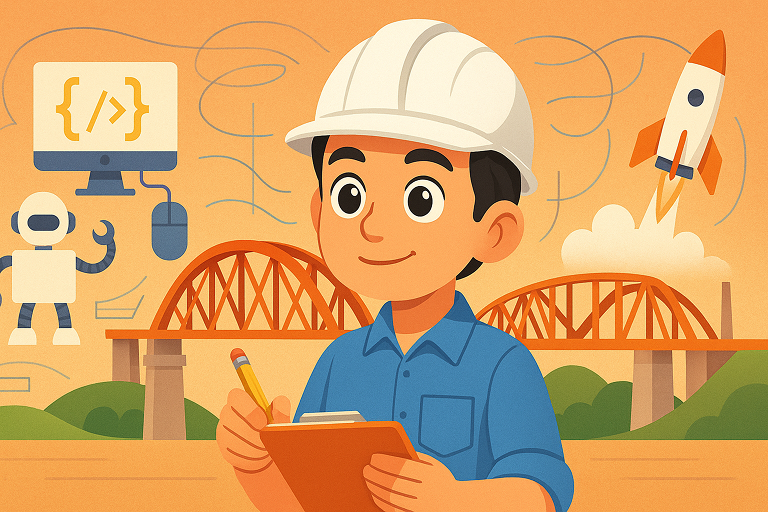If you’ve ever built a Lego tower…
fixed a broken toy (or tried to)…
imagined your own robot…
or wondered how bridges don’t fall…
…you might already be thinking like an engineer.
Engineers are the problem-solvers of the world.
They turn ideas into machines, buildings, apps, cars, rockets, and even tiny medical devices smaller than a seed.
But how does someone actually become an engineer?
Let’s explore it step by step — like a fun adventure map.
🌟 Step 1: Start With Curiosity
Engineers begin as curious kids who:
- ask how things work
- take things apart
- love building
- notice small details
- enjoy puzzles or challenges
If you’ve ever asked “Why?” more times than your parents can count — you’re on the right path.
🧩 Step 2: Learn the Basics in School
To become an engineer, school subjects help build the foundation:
- Math (very important!)
- Science
- Computer basics
- Creative projects
Don’t worry — you don’t need to be a genius.
Engineers improve by practicing, not by being perfect.
🛠️ Step 3: Build, Break, Try Again
Engineers learn by doing.
Try simple projects at home:
- Make a paper bridge
- Build a small machine using a hobby motor
- Try DIY robotics kits
- Explore coding games
- Join a school science club
Every little experiment makes your brain stronger.
🎓 Step 4: Choose the Science Stream After Class 10
Most engineers study Physics, Chemistry, and Math (PCM) in high school.
This prepares you for engineering entrance exams later.
If you enjoy tech, machines, or solving puzzles — PCM will feel like a playground.
🏗️ Step 5: Pick Your Engineering Field
Engineering is HUGE.
There’s a type for every imagination:
💻 Computer Engineer
Builds apps, websites, games, AI systems.
🛠 Mechanical Engineer
Designs machines, engines, robots.
🏗 Civil Engineer
Builds roads, bridges, buildings, dams.
⚡ Electrical Engineer
Works with circuits, power, electricity.
🚀 Aerospace Engineer
Designs airplanes, satellites, rockets.
🌱 Environmental Engineer
Solves pollution and protects nature.
🤖 Robotics Engineer
Builds smart robots that help humans.
🧪 Chemical Engineer
Creates medicines, fuels, and materials.
Engineers are everywhere — from hospitals to space stations.
🎓 Step 6: Engineering College Training
After Class 12, students take entrance exams like:
- JEE
- State engineering tests
- Private college exams
Then comes B.Tech or B.E. (a 4-year degree).
In college you:
- build real machines
- code apps
- design structures
- do lab experiments
- work in teams
- create projects
- solve real-life problems
This is where your ideas turn into actual inventions.
🧠 Step 7: Become a Real Engineer
After college, engineers join:
- tech companies
- construction firms
- research labs
- automobile companies
- energy plants
- space agencies
- startups
- or build their own inventions
Every industry needs engineers.
They’re the backbone of modern life.
💡 So… What Do Engineers Really Do?
Engineers:
- design things
- fix things
- improve things
- invent things
- make life easier and safer
They solve problems like:
- How do we make cars safer?
- How do we clean polluted water?
- How do we build earthquake-resistant buildings?
- How do we create robots that help doctors?
- How do we send rockets to Mars?
Engineers don’t just build machines —
they build the future.
🌈 Final Thought
Becoming an engineer isn’t about being perfect in math or topping every exam.
It’s about curiosity, creativity, patience, and a mind that loves challenges.
Every time you fix, build, imagine, test, or try again —
you’re already taking steps on your engineering journey.
And who knows?
Maybe one day your invention will change the world.



